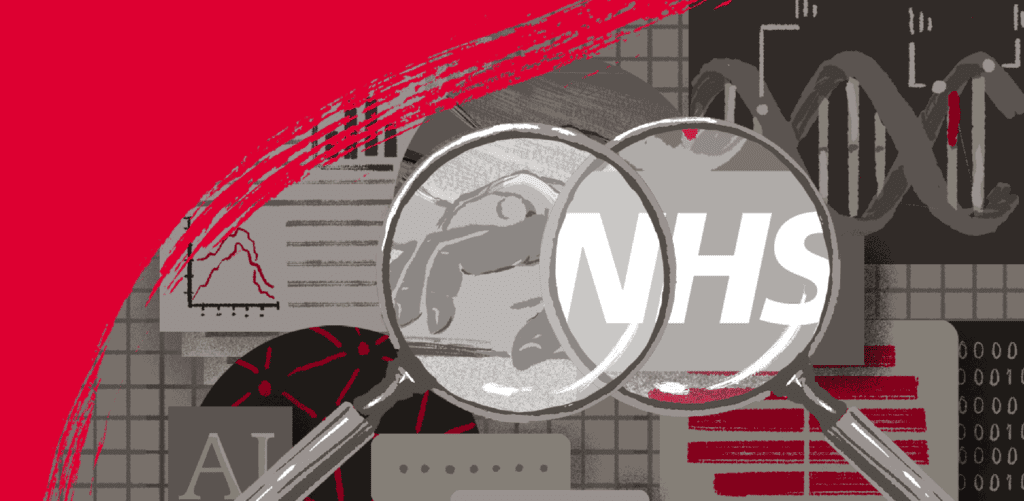Unfortunately, your browser is too old to work on this website. Please upgrade your browser
Feature
Time to read
About 3 mins to read

This month’s Health Foundation podcast is a special one. Not only is it our festive round up of our favourite conversations from 2024, but it also marks our 50th episode.
Every month since October 2020, our Chief Executive Dr Jennifer Dixon has spoken with leading voices in health and care as well as high-profile guests from politics, economics and beyond, getting their views on the most topical issues facing health and care.
Here, we revisit the top five most listened to Health Foundation podcasts.
1. Low life expectancy in Glasgow, and what to do about it – with Dr David Walsh and Sir Harry Burns
Episode 10, July 2021
Think of health in the UK as a fabric, and it’s at its most threadbare in Glasgow. Here, life expectancy is lowest and 1 in 4 men will die before their 65th birthday. Even after adjusting for poverty and deprivation, Glaswegians have a higher risk of dying prematurely compared with those in other deindustrialised cities. That’s from cancer, heart disease, strokes, as well as so-called ‘deaths of despair’. In our most listened to episode, we explore what is fraying Glasgow’s health to this degree and what is being done to help.
Listen now: Low life expectancy in Glasgow, and what to do about it
2. Inside the teen mind: what’s happening to mental health? – with Jean Twenge and Yvonne Kelly
Episode 8, May 2021
The pandemic created profound challenges for young people, with education, work, relationships and social time all affected. Combined with big changes in how young people are living their lives – such as a huge increase in the use of social media – and increasing economic and social pressures, it’s perhaps unsurprising that we’ve seen growing levels of depression, self harm, anxiety, eating disorders and other mental health issues in teens. This episode looks closer at what’s going on.
Listen now: Inside the teen mind: what’s happening to mental health?
3. What should nanny do next? The government and obesity – with Dame Sally Davies, Harry Rutter and James Forsyth
Episode 2, November 2020
Evidence tells us that many external factors shape our ability to be healthy – but people often think it’s up to individuals to manage their own weight. Some governments are also squeamish about intervention in people’s lives leading to a so-called ‘nanny state’. However, in this episode, we discussed how polling showed that the pandemic changed the way that people in the UK view the government’s role in improving our health. It also moved tackling obesity higher up the agenda.
Listen now: What should nanny do next? The government and obesity
4. AI in health care: hope or hype? With Professor Sir John Bell and Dr Axel Heitmueller
Episode 30, March 2023
We seem on the cusp of a revolution in how AI will change our lives – and health and care could be at the centre of those changes, with promises that AI will transform medicine, allow personalised prevention and boost productivity. But is this hype or real hope? In this episode we explored how AI might transform health and care services and the experiences of staff and patients, looking at progress so far, and how best to move forward safely.
Listen now: AI in health care: hope or hype?
5. We are what we eat: food, health and inequality – with Anna Taylor and Sarah Hickey
Episode 11, August 2021
Food is crucial to our health, but it is also a driver of ill health, health inequalities and damage to the environment. In this podcast, we discussed two areas covered by the second part of the National Food Strategy (published in July 2021) – reducing the amount of junk food and diet-related inequality. We also considered this alongside the government’s 2020 obesity strategy, asking how best to make a difference to these large and complex challenges.
Listen now: We are what we eat: food, health and inequality
This content originally featured in our email newsletter, which explores perspectives and expert opinion on a different health or health care topic each month.

